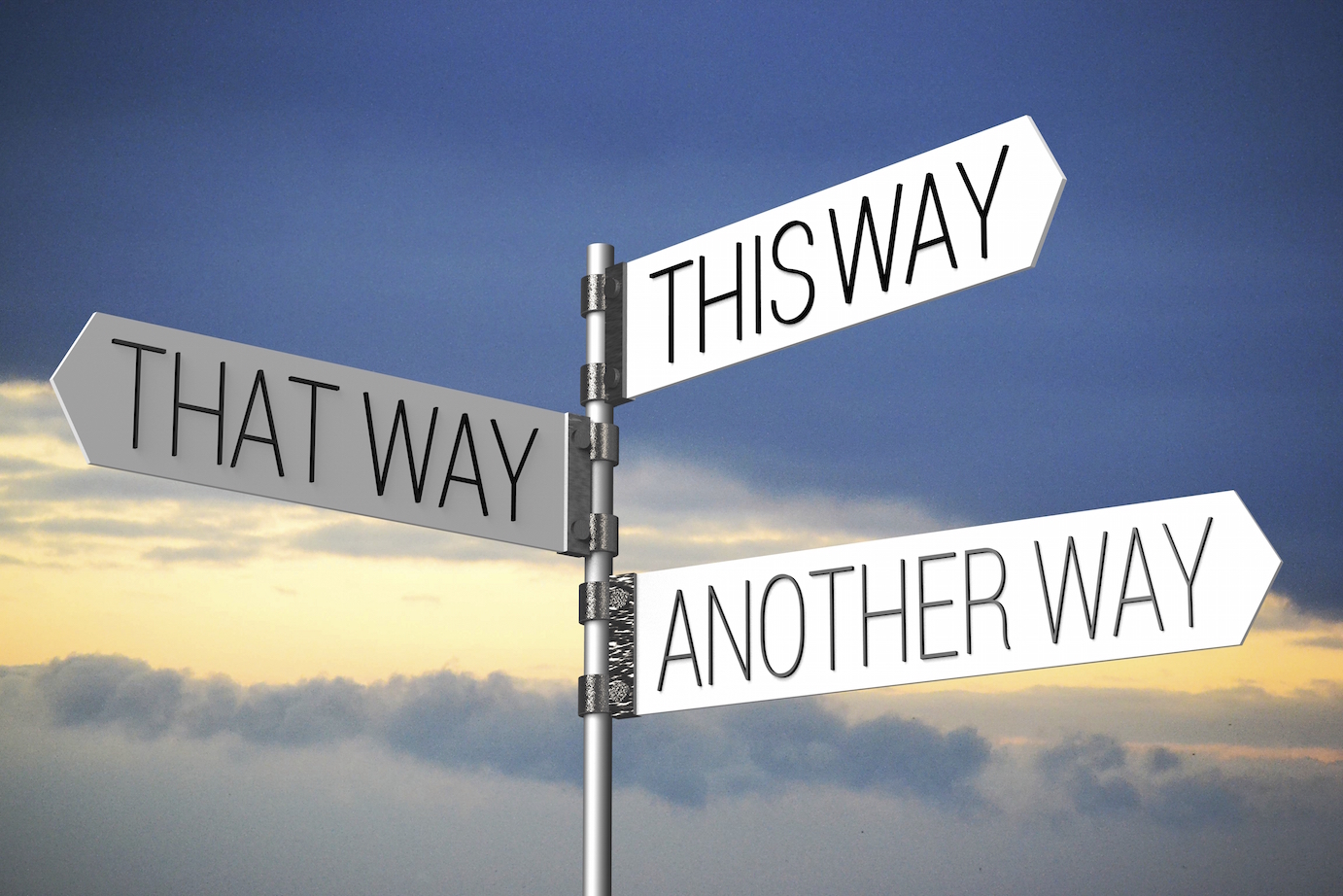The etymology behind certain words can be very telling and the word “decision” holds a lot of weight when broken down. Take a look:
- The Latin word decisionem is the past-participle stem of decidere which means “to decide, determine”
- Broken down by root: de (off) + caedere (to cut) literally means “to cut off”
When you say you are going to “cut off” a particular choice, it makes the act of deciding feel very absolute. Take it one step further:
- The root “caedere” is shared by “decide” and “homicide” which mean “to cut off” and “to kill” respectively.
That loss looms especially large when you are met with indecision or decision fatigue. So how do we face decisions head-on?
Know yourself and what works for you.
Timing is critical with decision-making. This is seen with alarming consequence in a study of Isreali parole boards. Parole hearings early in the morning or right after a (food) break received more favorable judgement than those later in the afternoon or further from a break. Fascinating!
Conversely, a client of mine approaches his day by first tidying up his to do list of the small items, clearing the way and his mind, for the biggest tasks and decisions in the afternoon.
Timing is a big influencer in decision-making and when we are not in our peak, our brain looks for shortcuts such as:
- act impulsively to avoid assessing all available options
- simply opt out of the decision-making process all together
There are a few other factors to help us clear the path for better decision making:
How important is this decision?
Instead of agonizing over every decision, or avoiding them altogether, consider the importance of each decision. If a decision will not have a lasting impact on your business, relationship, or significantly impact others, then do not allot a significant portion of limited resources (like your time and energy) to your options. Identify the available options, rely on your instincts to help make the decision and move on. Make room for those decisions that will have lasting impact on you and/or others.
Set a deadline.
Gathering information to help you make the best decision is prudent when the decision has significant impact to you and those around you. People will often justify avoiding a decision by stating they want to “gather more information” or “be considerate of others”, but that delay can have even higher consequences than making the “wrong” decision. Determine a timeline early on to be accountable to making the decision so you don’t hold yourself or others hostage to the lack of decision. Taking calculated risks and being willing to learn from your mistakes is a better strategy than paralyzing progress by delaying a decision.
A fresh perspective.
There is often freedom in the realization that you are not required to always do this alone. Even if you are ultimately the final decision maker, a different perspective can help identify the appropriate way forward – sometimes realized through the basic act of presenting the situation to another person. This person can be a close confidant, a colleague or boss, or even a hired resource that has expertise in the particular area.
This is why you see organizations set up Advisory Boards – a team of professionals with a wide range of expertise to offer the organization different perspectives on major business decisions.
Scenario Planning
In the 1970s, Royal Dutch/Shell established scenario planning in business as a way to evaluate strategic options by determining what we know about a given situation and identifying the uncertainties. Putting these details side-by-side and evaluating the potential outcome scenarios with all factors combined opens up perspective for a more qualitative decision rather than focusing simply on the knowns, thus potentially isolating your options.
Good night.
It is not very often an important decision that has the potential to significantly impact your life also has a sense of urgency so much so that you cannot take one night to weigh your options. In this fascinating podcast, Joe Rogan talks with a Nueroscientist about sleep. If you take nothing else from this post, please set aside time to listen to this podcast! They discuss the fact that during REM sleep, our body takes existing (or old) information and combines it with new information to form new connections which is why sleep is tremendously powerful in critical decision-making (and learning a new skill). So, give yourself at least one good night’s rest to support the effort in making the right decision.
Important decisions are not easy. If they were, they probably wouldn’t be that important. To recap:
- determine the criticality of the decision
- know your peak time for optimal decision-making
- don’t be afraid to ask for help
- hold yourself accountable
- be willing to learn from your experiences and the unknowns
- sleep on it


